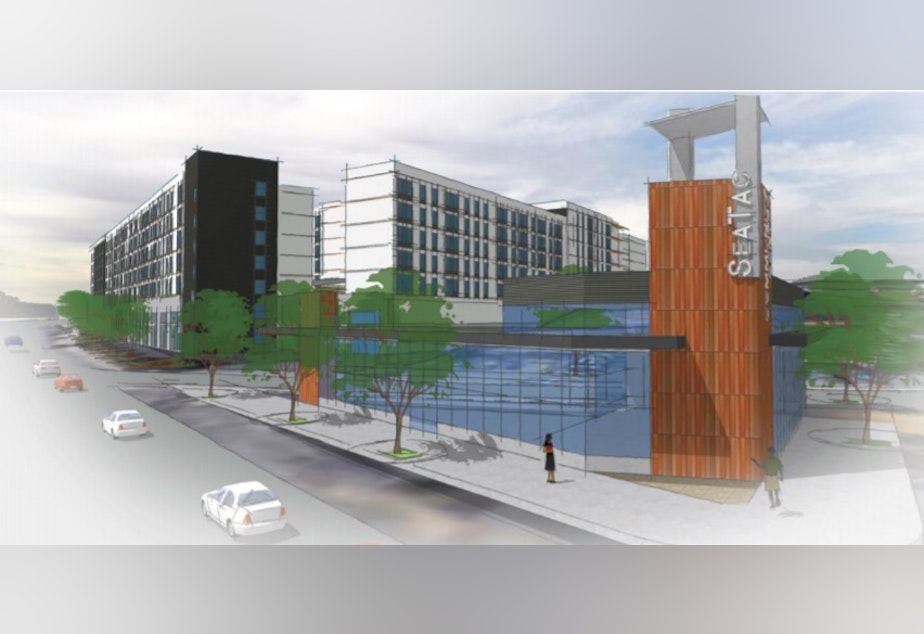Immigrant-owned businesses sue over displacement in SeaTac

Immigrant business owners south of Seattle say they're being displaced — and now they're suing.
It comes as the SeaTac City Council moves forward with plans to sell SeaTac Center, where the businesses are located. The council voted to approve the sale to CAP Acquisitions (Inland Group) on Thursday.
Ali Elmi runs a restaurant and market at SeaTac Center. He's part of a business coalition that has filed a lawsuit against the city's government, saying it needs to help pay for the businesses to relocate if they're forced to move.
"We've struggled all our lives, these businesses are mainly women — East-African, Muslim women — and now they are at a point in their life where they are living their American dreams, becoming entrepreneurs. And that'd be just taken away. We are out of words," Elmi said.
Elmi said there are more than 50 local businesses at the shopping center, selling East-African clothing, halal meat and specialty foods, furniture and more.
SeaTac city officials declined to comment on Friday on the concerns by business owners, saying they can't comment due to the pending litigation.
Sponsored
The property deal still needs final approval from the developer, Inland Group, which intends to build housing units and commercial space on the site.
The 50 plus immigrant-run businesses will spend the next year looking to relocate. They have until September 2019, at the latest, to move out of SeaTac Center if it's sold.
Elmi said Inland Group has offered to include room for 5-10 of the existing businesses when the site is redeveloped. He said the SeaTac Center Community Coalition is lobbying the city and Inland Group to keep space for all of them. The City Council has power over the design of Inland Group's development, even after SeaTac sells the property.
"We love our city. We live in SeaTac, we do business in SeaTac, and so we're not against any development. What we've been asking for all along is inclusion with our businesses, a place at the table," Elmi said.
Inland Group has roughly five months to decide whether to buy the land. Design negotiations would begin after that.




